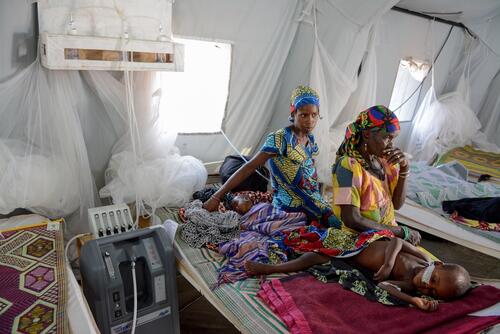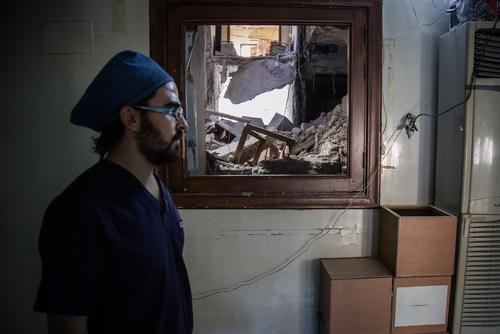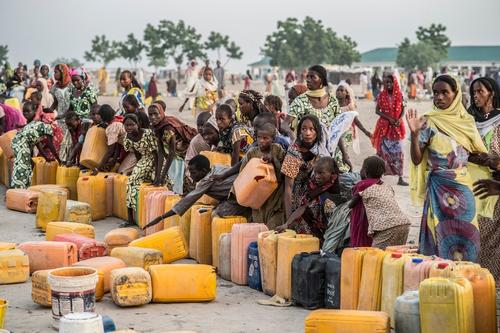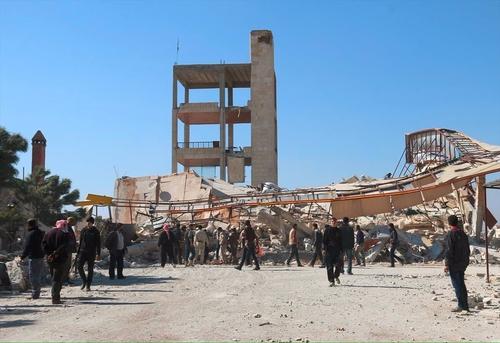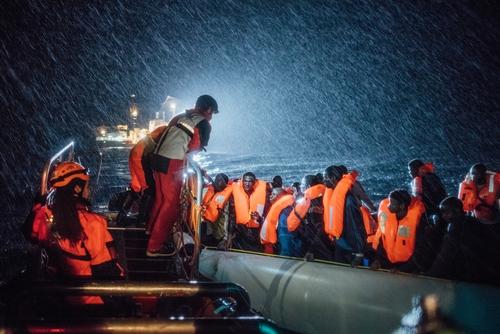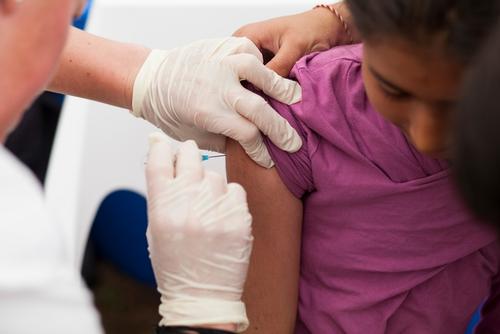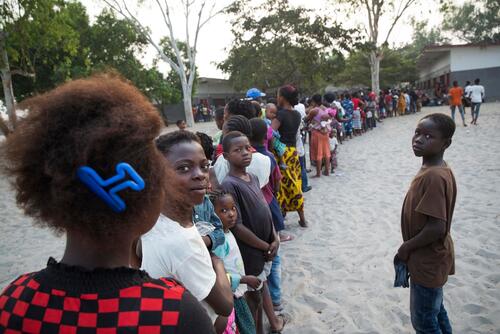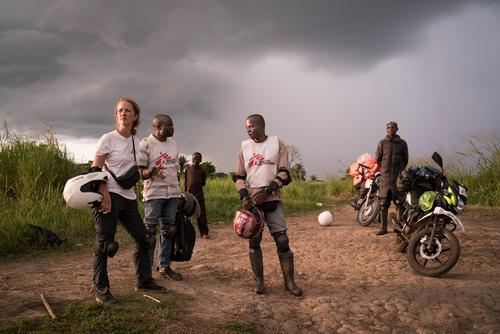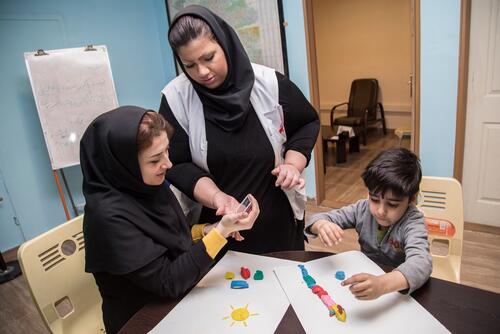
129,400
129,4
62,100
62,1
28,300
28,3
Diffa region
Diffa region, on the border with Nigeria, continued to suffer the consequences of the conflict between Boko Haram and the different armies in the area. According to local authorities, at the end of 2016, there were over 240,000 refugees and internally displaced people in Diffa, as well as 100,000 local residents living in precarious conditions, vulnerable to violence and disease. Many of these people were depending entirely on humanitarian aid to survive, yet the international community’s emergency response was not sufficient to fulfil their basic needs. MSF published a report highlighting this emergency gap to mobilise the international community.
MSF worked closely with the Ministry of Health to provide free basic and reproductive healthcare for the local community and displaced people, and to respond to emergencies. Teams worked in the main maternal and paediatric health centre in Diffa town, the district hospital in Nguigmi town and in several health centres throughout the districts of Diffa, Nguigmi and Bosso. After attacks by Boko Haram on 3 June in Bosso, MSF started to run mobile clinics in Diffa town to respond to the needs of the newly displaced. Teams also provided medical and humanitarian assistance at the Gari Wanzam site and in Kintchandi, where tens of thousands of people sought refuge after the attacks.
MSF teams carried out more than 317,000 consultations, assisted over 3,810 deliveries and treated around 24,500 malaria patients in Diffa this year.
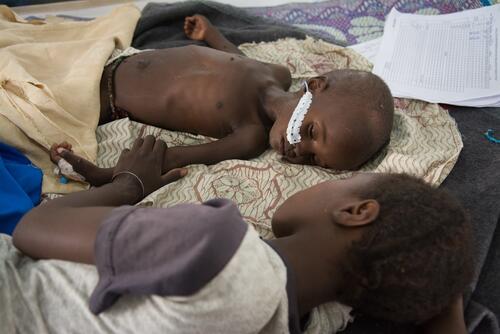
Tahoua region
MSF continued to work at Madaoua district hospital, running the inpatient therapeutic feeding centre (ITFC) and the paediatric and neonatal wards. The hospital has a capacity of 350 beds during the ‘hunger gap’, when there is a peak in malnutrition and malaria cases. In 2016, MSF also started supporting the hospital’s maternity ward to reduce newborn mortality. In addition, MSF staff worked in several health centres in the district and continued to implement the comprehensive preventive and curative care programme (known by its French acronym PPCSI), which fully monitors all children under the age of two, in Tama.
In Bouza, MSF managed the paediatric ward and the ITFC in the district hospital until the end of April, when the project was handed over to the Ministry of Health.
Zinder region
MSF continued to support the paediatrics unit and the ITFC in Magaria district hospital. Between June and December, the team repeatedly boosted capacity to deal with the increasing number of admissions for malnutrition and malaria, reaching a maximum of 600 beds in the peak weeks. In addition, MSF supported 11 health centres to provide primary healthcare to children under the age of five, and reinforced the hospital referral system for the most severe cases. In the nearby district of Dungass, MSF opened another 200-bed paediatric unit during the peak season. More than 13,300 children suffering from childhood diseases and malaria, to which under-fives are very vulnerable, were admitted to hospital in Magaria and over 66,500 were treated in rural areas. These figures represent a worrying increase in comparison with previous years.
MSF teams also ran community-based activities to combat malaria, and more than 117,000 children in eight health zones in Magaria district received seasonal malaria chemoprevention – the repeated administration of antimalarials as a prophylactic.
During the peak malnutrition and malaria season, MSF supported the inpatient paediatric unit at the national hospital and an ITFC in Zinder City, and another ITFC in Chare Zamna, with financial aid, staff training and medical supplies. After two years of progressive handover, MSF withdrew from this project in December 2016.
Maradi region
With a population of 500,000, Madarounfa is one the largest districts in Maradi region. MSF continues to run its paediatric programme focusing on the management of the main causes of childhood death, notably malnutrition and malaria, in Madarounfa town and the surrounding area. Mothers also come over the border from Nigeria to seek treatment for their children. The programme, which opened in 2001, today comprises inpatient care for malnutrition and/or other diseases, and outpatient treatment for severe malnutrition without complications. This year, the team added neonatal care to activities, and worked to improve community-based treatment of malaria. A total of 12,256 children received outpatient care for severe malnutrition, 3,317 were treated in the ITFC and 5,334 were admitted for other diseases.
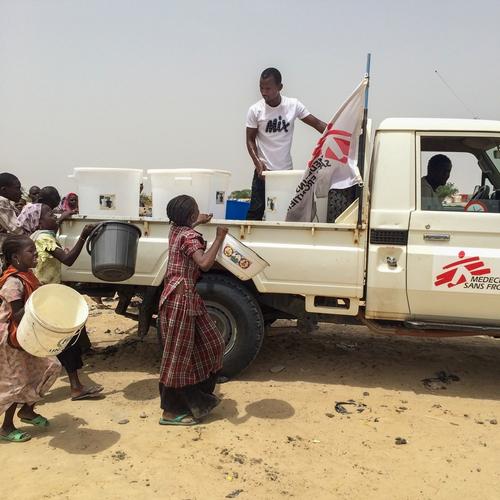
Emergency response
Niger experienced another meningitis outbreak this year, although not as serious as that of 2015. According to official figures, 1,409 cases of meningitis C were identified and 94 people died of the disease between March and June.
MSF supported the Ministry of Health to monitor the affected areas, administer vaccinations and provide treatment. To prevent the spread of the epidemic, teams conducted targeted vaccination campaigns with the Ministry of Health in the worst-affected areas, reaching nearly 254,000 people in Tillabéri, Dosso and Tahoua regions.
MSF also supported the Ministry of Health’s response to several measles outbreaks, vaccinating 70,000 people in two areas of Tahoua region, over 66,000 in four areas of Diffa region and 61,000 in Tillabéri region. In addition, staff treated 130 measles patients in Tahoua.
Other emergency teams helped to carry out a preventive vaccination campaign against cholera in several locations in Diffa region and assisted victims of the severe floods that affected around 10,000 people in Abalack, Tahoua.
2,087
2,087
26.4 M
26.4M
1985
1985
Find us online
Patient Story
Fanta Meleram – 30, fled northern Nigeria when her village was attacked and found refuge in Diffa region.
“I took my son to the health centre today because he is malnourished. I have just visited so that he can receive his treatment, a therapeutic food. This health centre is wonderful because when we come with our children or when we are ill ourselves, we are looked after for free. When Boko Haram attacked, we left Malanfatori in a rush and in a total panic. Some of our children succeeded in fleeing with us, but others were left behind and some women lost their husbands during the escape. They pursued us until we succeeded in crossing the Komadougou river to come to Niger. We arrived empty-handed and our husbands are not working. It is difficult to find food and it is very difficult to live in these conditions. Sometimes the state gives us help, and that is a relief.”



